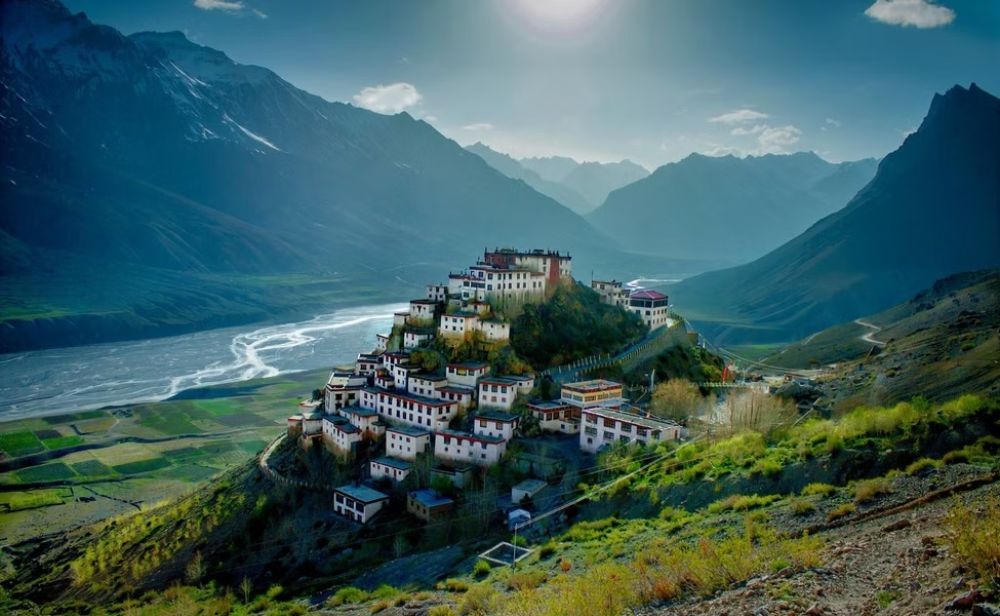

Nestled in the cold desert mountain valley located high in the Himalayas, Spiti Valley is part of the Lahaul and Spiti district in the north-eastern part of Himachal Pradesh, India. Its name "Spiti" means "The Middle Land" – the land between Tibet and India – reflecting its cultural and geographical ties with both regions. The region is known for its stark beauty, monastic legacy, vibrant culture, and rich biodiversity.
Tourism in Spiti Valley has been a relatively recent phenomenon. Traditionally, the valley was a secluded haven, with access routes being formidable and the harsh weather conditions permitting only the hardiest to visit. However, the inception of tourism can be traced back to the early 1990s. Before this period, Spiti was largely closed to outsiders due to its proximity to the Tibetan border and the sensitivities involved.
The opening up of Spiti to tourism brought a wave of adventurers drawn by its untouched landscapes and spiritual heritage. Early tourists were predominantly trekkers, mountaineers, and cultural enthusiasts who sought the untouched beauty and serenity that Spiti offered. They paved the way for a burgeoning interest in the region, leading to more structured tourism developments.
The Indian government's initiatives to boost connectivity and infrastructure have aided Spiti's emergence as an alternate tourist destination to the more crowded hill stations in Himachal Pradesh. Homestays and eco-tourism have become an integral part of the local economy, offering authentic cultural exchanges and sustainable tourism models.
Among the major draws of Spiti Valley are the Key Monastery, Tabo Monastery – a UNESCO World Heritage Site, Dhankar Monastery, and the tranquil Chandratal Lake. The rugged and varied terrain also offers opportunities for high-altitude trekking and jeep safaris, attracting adventure enthusiasts from around the globe.
In recent years, Spiti Valley has seen an uptrend in motor biking and cycling tourism due to the challenging roads and fascinating landscapes. There has been an increased focus on sustainable tourism practices like community involvement and the promotion of local handicrafts. Alongside these, experiential travel has become popular, with visitors looking to immerse themselves in local traditions and lifestyles.
The development of niche tourism sectors like astro-tourism has been encouraged by Spiti's clear night skies. Efforts are underway to market the valley as a destination for solace and wellness retreats, tapping into the growing global wellness tourism market. Moreover, with the increasing digital footprint and presence on social media, more and more travelers are being drawn to the ethereal beauty of Spiti Valley, leading to an increasing need for responsible tourism to preserve the valley's pristine condition.
Despite the picturesque setting and growing interest in Spiti, tourism faces challenges such as limited accessibility during winter months, environmental concerns, and the need to balance local lifestyle preservation with tourist influx. The promotion of eco-friendly practices and regulation of tourist activities are essential to ensure the sustainability of tourism in this ecologically fragile region.
Spiti Valley's journey from an inaccessible land to a sought-after tourist destination is a testament to its extraordinary charm and the resilience of its people. As a hub for adventure, culture, and spiritual seekers, the tourism landscape of Spiti continues to evolve, making it imperative for travelers and stakeholders to foster tourism practices that protect and honor this irreplaceable gem of Himachal Pradesh.